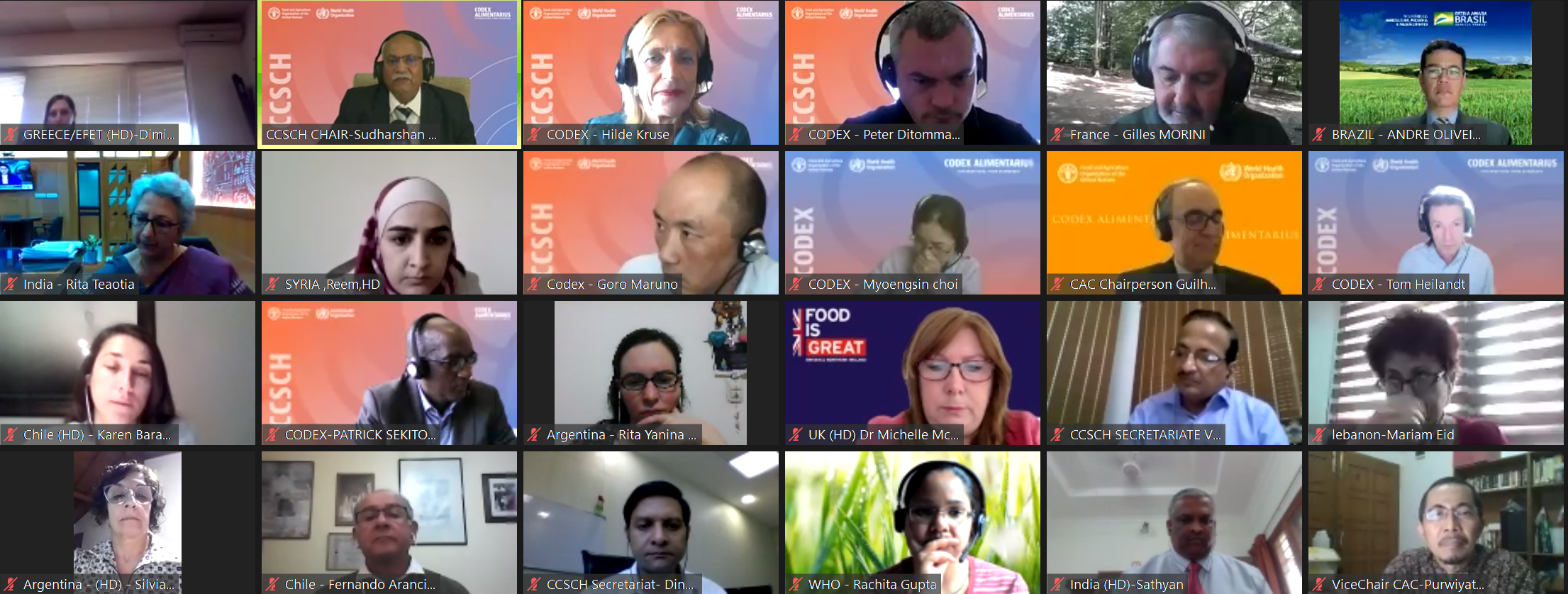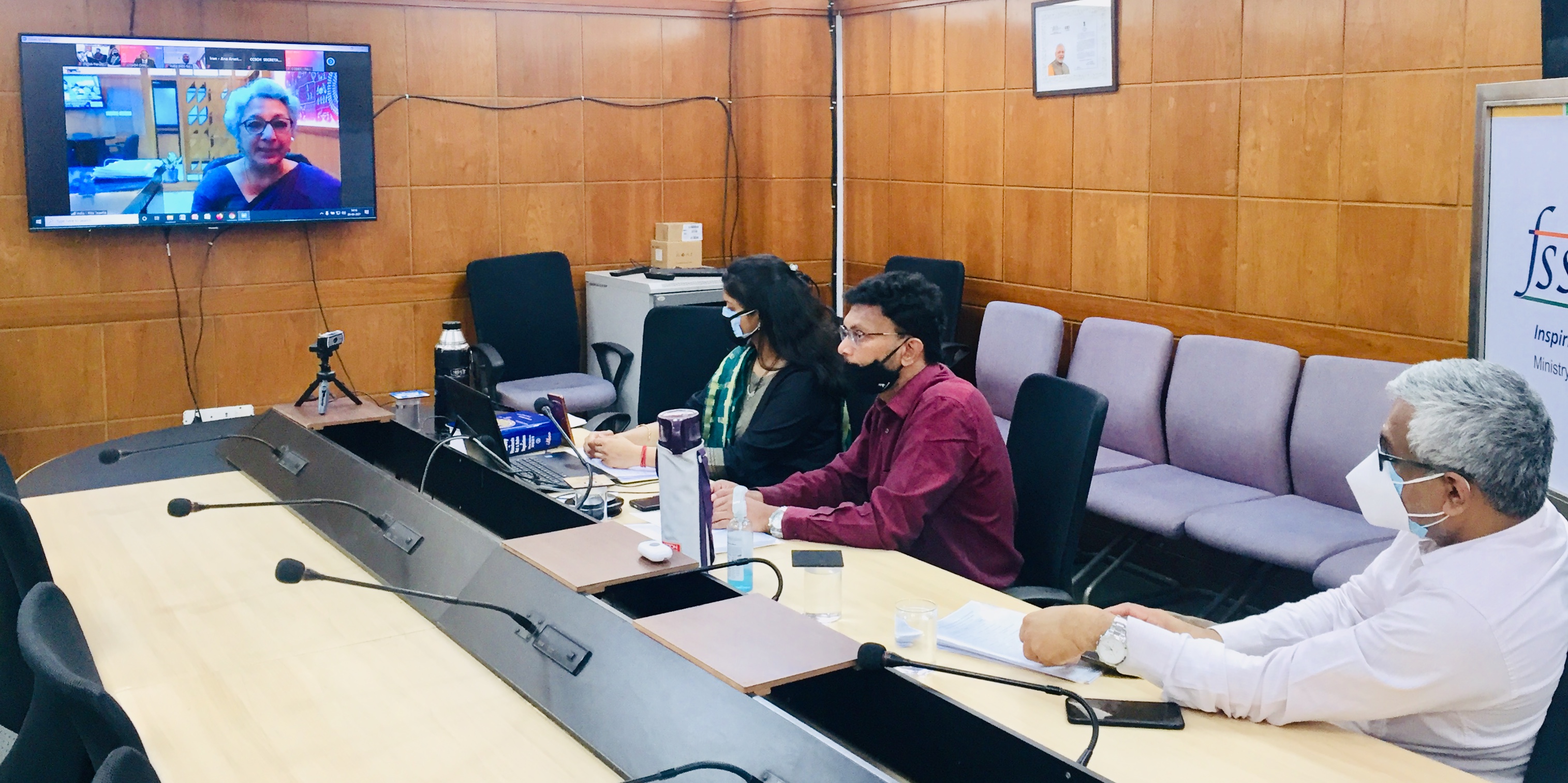The CCASIA Region - Regional Coordinator China
The Coordinating Committee for Asia was established at the 11th Meeting of the Codex Alimentarius Commission held in Rome, Italy, in July 1976. Its first meeting was held in New Delhi (India) in January 1977.
The regional coordinator operates from within the China National Center for Food Safety Risk Assessment.
China’s main priorities as coordinator include enhancing participation in Codex meetings, supporting the prioritization of Codex work in the region, improving harmonization of food safety standards and accelerating the revitalization of the coordinating committee by sharing information and providing regular updates on food safety issues within the region.
China also wishes to promote collaboration with observer organizations and improve efficient and effective communication between regional members FAO, WHO, and the Codex Secretariat.
CCASIA Coordinator
All information on Codex is public and free.
For regional enquiries contact:
CCASIA Secretariat
No.37,Guangqu Road, Chaoyang District, Beijing 100022
Tel:
Tel: +86-10-52165402
Email: [email protected]
The Spice Bowl of the World takes up the challenge of a virtual session
The Codex Committee on Spices and Culinary Herbs (CCSCH) began today with a series of virtual sessions running from 20 to 29 April 2021. Welcoming delegates and speaking on behalf of the hosts India, Mr. D. Sathiyan, Secretary of the Spices Board underlined the physical, technological and logistical challenges facing the committee. “It is heartening and encouraging to note that even in the midst of this difficult situation, the Member Countries have shown tremendous interest in the spices and culinary herbs committee,” he said.
The committee will discuss seven draft standards including oregano, ginger, saffron and basil, all extremely close to being ready for adoption once the committee reaches consensus on outstanding technical details.

Over 150 delegates attend opening of CCSCH5
Working on single items, CCSCH would need over 50 years to develop texts for the 116 named spices and culinary herbs it has identified. The committee will therefore also explore how to save time by grouping them into categories. “It seems an obvious and logical choice to bring in ‘grouping of spices’ to cover more ground quickly,” said Sathiyan.
Developed countries are the major importers of spices and insist on strict standards. “The development of Codex standards for these commodities will help improve the international spice trade,” said Konda Chavva, Assistant FAO Representative in India. In India spices are grown in small landholdings and improving the spices value chain, based on Codex food standards, “will lead to the acceptability of farmers’ products in the global markets and better price realization for small and marginal farmers,” he said.
“In order to be a successful food exporter, a country must produce food that is acceptable to consumers in other countries and which complies with the statutory requirements of the importing countries,” said Roderico H. Ofrin, WHO Representative in India. Both producers as well as the food regulators have a critical role in ensuring compliance with food safety, quality and sustainability standards which is becoming increasingly demanding because of the concern around food safety, especially in the current context of COVID-19 said Ofrin.
We need to be extremely vigilant particularly in the regulatory space.
Ms. Rita Teaotia, Chairperson, Food Safety and Standards Authority of India, described the risk of unscrupulous and intentional adulteration of spices through substitution and alteration due to their high economic value. “This economically motivated adulteration is a major malpractice and we need to be extremely vigilant particularly in the regulatory space to avoid such practices. It is all the more important that we have harmonized Codex standards for spices products in global trade and this is a work that needs the highest priority to ensure the safety and quality of the spices and culinary herbs that are being traded across the world,” she said.

India delegation in Delhi listens to Rita Teaotia at CCSCH5
Guilherme da Costa, Brazil, Chairperson of the Codex Alimentarius Commission reminded those present of their collective responsibility towards the global society regarding food safety. “It is essential and paramount to do our best to develop and disseminate Codex standards to ensure the safety and quality of food for everyone, everywhere,” he said.
Learn more
Programme schedule and all working documents available on the CCSCH5 meeting page.
Download the CCSCH5 Newsletter
Main photo (left to right):
M.R.Sudharshan, Chairperson CCSCH; D. Sathiyan, Secretary, Spices Board; Ms. Rita Teaotia, Chairperson, Food Safety and Standards Authority of India








Leave a comment